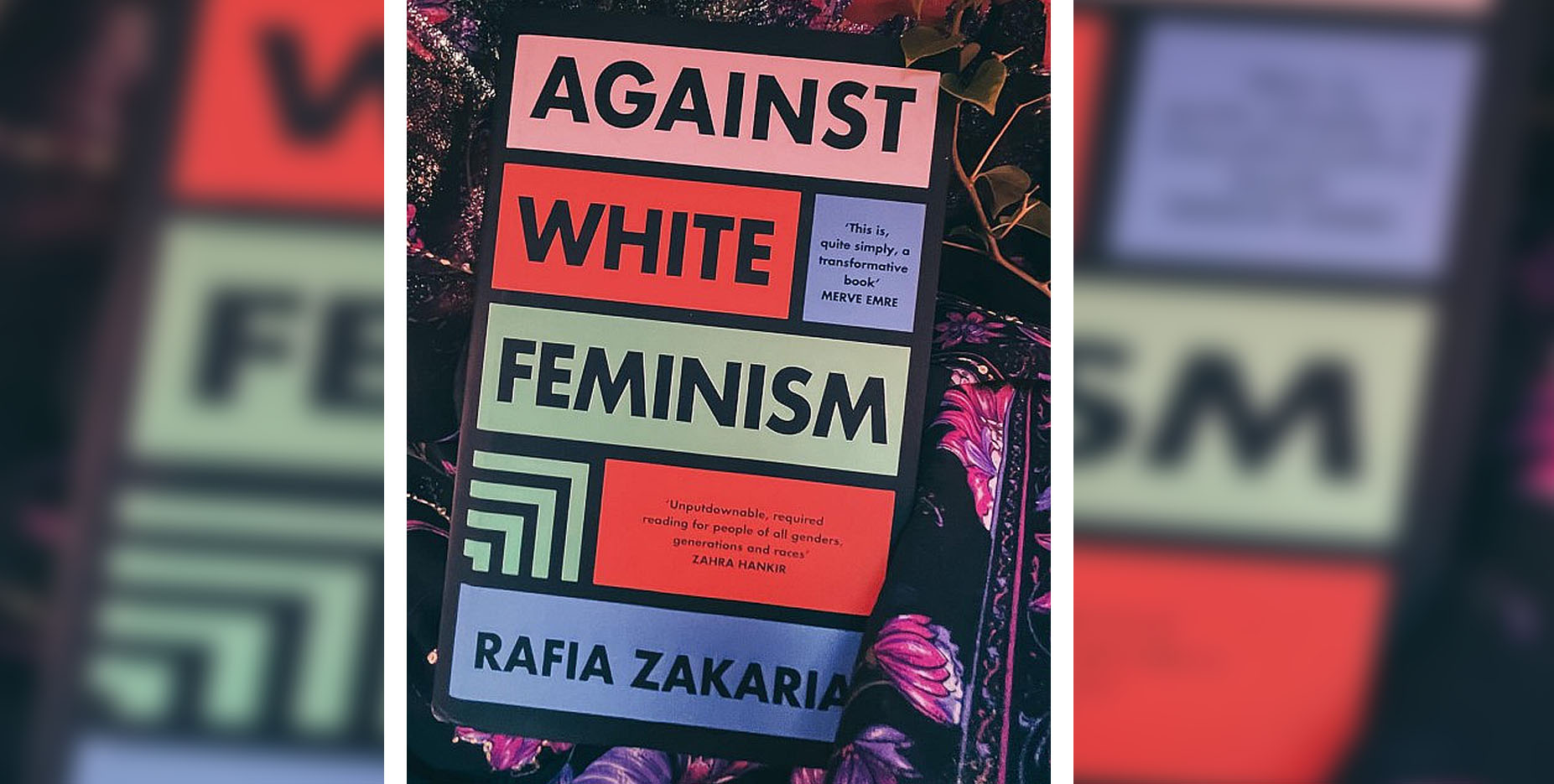
Against White Feminism by Rafia Zakaria, 176 pages.
Hamish Hamilton. 2021
The book is an attempt to dissect and reframe the feminist discourse, calling out the systemic tendency to base its strength on subjugating “the other”.
This book is a cross between an academic paper and a selective memoir. Zakaria allows her lived expe
rience to illustrate and identify the built-in injustices within the movement, giving the book a very personal grounding. Zakaria loves the movement for its potential to raise women everywhere, but the ignorance of its champions about their own racial and consumerist privilege is a shameful aspect, and she has no qualms calling it out.
The author is highly critical of the pursuit of individual rights at the cost of the communal good. She engages with this idea by analysing the (re)actions of feminist movements collectively and looking at individual champions who are oblivious to their privilege and the detrimental cost of exercising it.
Zakaria writes about the feminist movement’s engagement with the death of Justice Ruth Bader of the US Supreme Court.
“While the death of the Supreme Court justice provoked debate among white feminists about the future of reproductive rights in the United States, almost none of them connected feminist organising around reproductive rights to the forced hysterectomies on minority women in captivity allegedly being carried out at the behest of the American state.” (p139)
Zakaria is highly critical of the ‘feminist’ writer or journalist who comes into spaces and erases the voice of the other woman, thus allowing her own voice and views to dominate.
“In discussions of her recent photo book, Love and War, Addario’s own bravery at going out into a war zone is front and centre, while the heroism of the civilians actually enduring a war imposed by the United States and its allies never comes up.” (p82)
Zakaria questions the characteristics on which feminists pride themselves, such as bravery (as illustrated in the quote above), but where is the consideration of the woman enduring the war? That voice and that experience of the other woman are deliberately wiped away from public discourse.
In identifying the anti-minority bias within feminism and its inability to espouse the cause of the other, she highlights how different labels are used to describe the violence against women, but “honour killing and ego killing are identical in their motivations to discipline and destroy women.
The driving force, in either case, is a man who believes he is entitled to power over a woman’s life.” (p120).
Zakaria sweeps aside labels to reveal the equal struggle to overcome systemic subjugation everywhere. In doing so, she levels the playing field.
The author claims the movement has morphed from a collective force into an illusion of the pursuit of the ideal individual woman because “Consumer capitalism beguiled women with options and the illusion of power and control. And the shopper is always an individual.
The window of a discourse of feminism had shifted: instead of aspiring to develop a consensus and build solidarity based on what was good for all women, individual women were rewarded and even celebrated for looking out for themselves.” (p.100)
The book claims “politics, with its agitation and collectivism, poses a threat to capitalism’s colonisation of all human activity for the purpose of profit.” (p.100). So, politics has been abandoned in the feminist movement, weakening its ability to win any significant positive changes.
Zakaria sometimes uses the book as a confession booth to explain how she inadvertently found herself propping up white privilege in spaces that she occupied. In doing that, she illustrates how these biases are built into our systems.
I thoroughly enjoyed this book for its clarity, language and ability to step between the personal and informative parts of the book.
Zakaria is trying to make the movement relevant to women of colour like her. In giving the movement historical contexts, she makes the reader understand where they are placed in the hierarchy, but also the white privilege —a legacy of colonialism —that needs to be sidestepped in order to overcome this gross inequity.
This book gave me clarity into the discomfort I find in identifying myself as a feminist because I know my struggle to be heard will not be taken up by fellows up the totem pole.
As Zakaria herself shows, quite often as women of colour we take on characteristics of privileges to climb up the ladder, and we need to be constantly mindful of our actions and our ability to include the voices of as many women as possible.
Our strength depends on it.
Aasiya I Versi